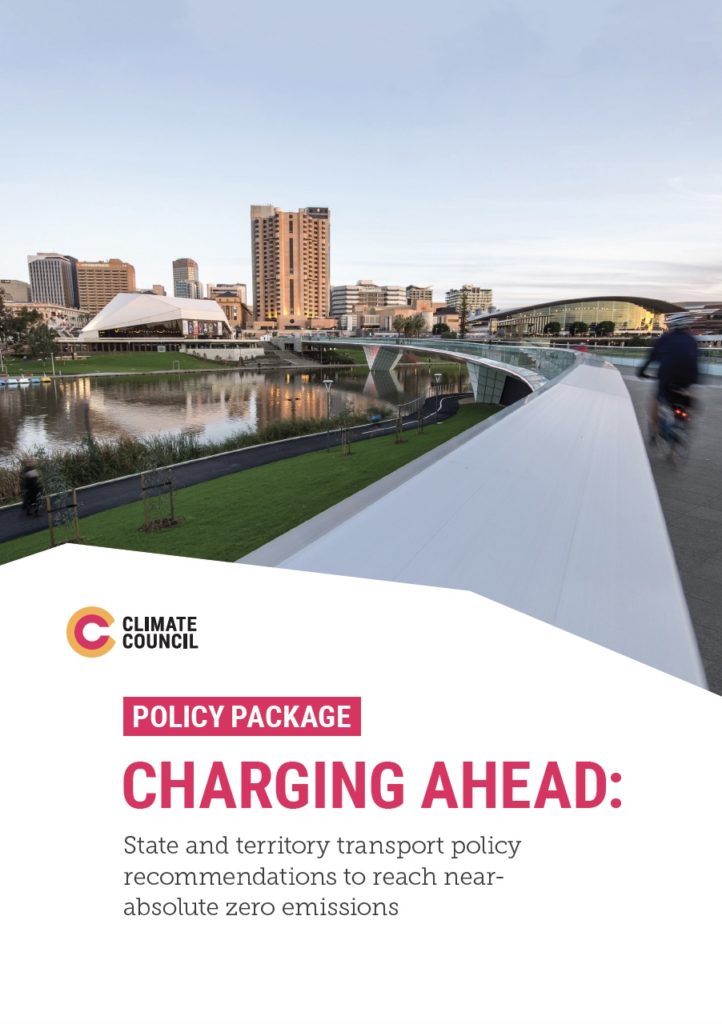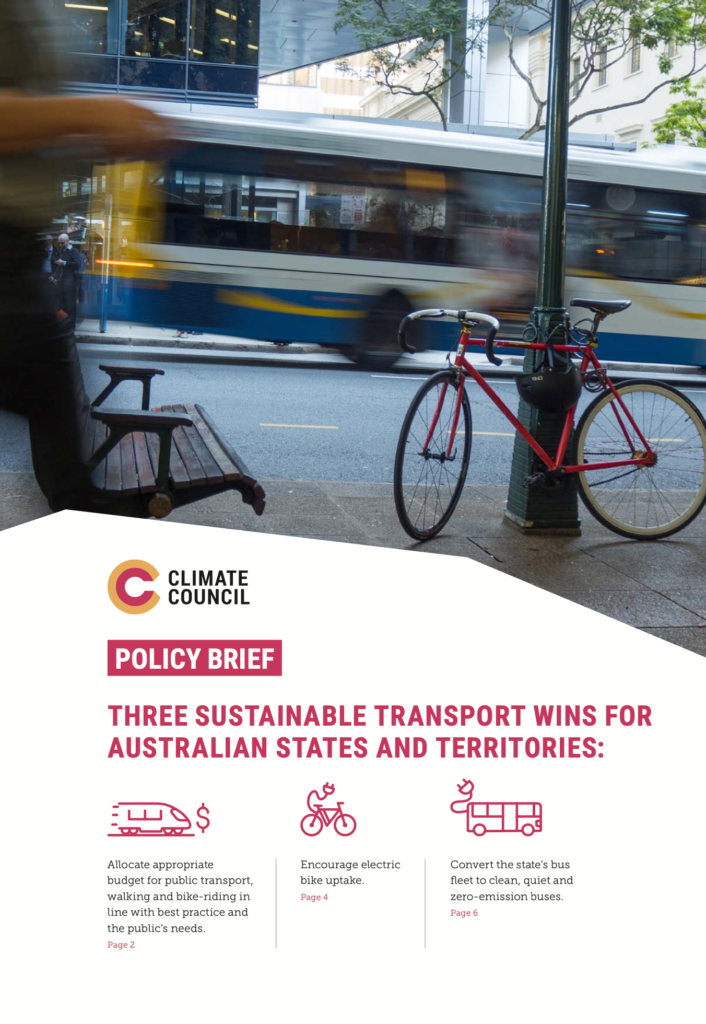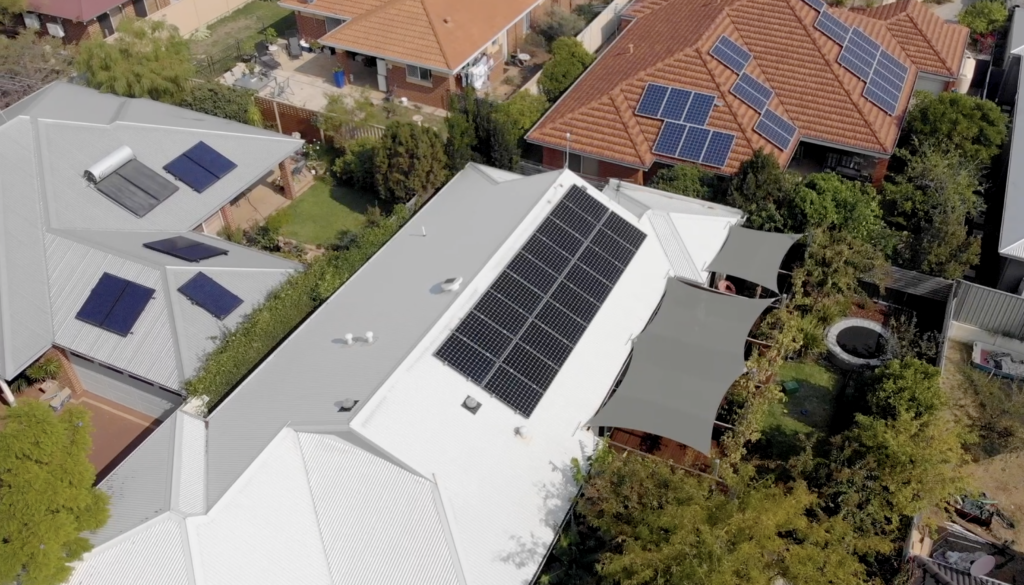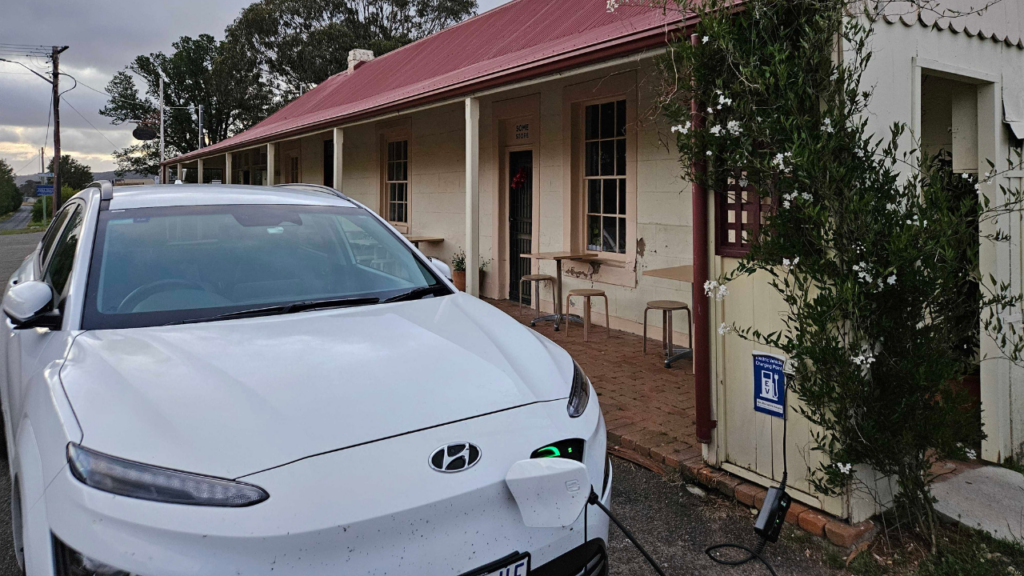As one of the fastest-growing sources of emissions in Australia, personal transport must be a focal point for state and territory emissions reduction plans.
Our transport system has a tangible impact on the lives of everyday Australians. People should be able to expect frequent, safe, accessible and connected zero emissions transport options. The prevailing model of privately-owned vehicles is costly in terms of vehicle ownership and running expenses, ongoing investment in road capacity, congestion, transport disadvantage and increased greenhouse gas emissions. To better serve communities and achieve climate targets, Australia’s personal transport system must shift from the current polluting, car-centric model to a sustainable, zero-emissions framework powered by renewable energy. States must move towards a transport system that prioritises active transport (walking and cycling) and public transport rather than cars used for personal transport – underpinned by a generous budget commitment. This policy package provides a number of policy recommendations in the urban setting that states can begin working on today.
To keep global temperatures below two degrees Celsius above pre-industrial levels and avoid the worst climate impacts, Australia must reach net zero emissions by 2035. This will require transport emissions to plummet by an average of 6.99 million tonnes annually – as sharp a drop as experienced due to the impacts of COVID-19. Yet, if Australia is to merely reach its current target of net zero emissions by 2050, emissions in this sector must drop by at least 3.24 million tonnes annually.
Policies and investments to reduce transport emissions are not only necessary, but are a relatively easy way for states and territories to make significant headway on their net zero targets. Importantly, with the relative ease at which this sector can be abated, a focus on near absolute zero emissions with minimal offsetting will be key.












